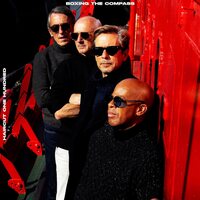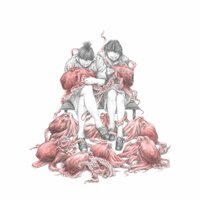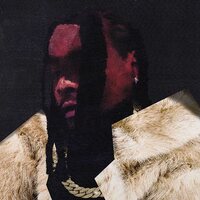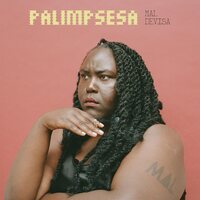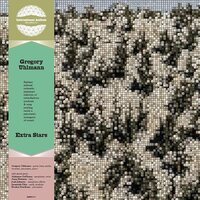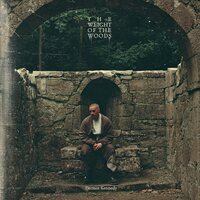Quartor with Maria Portugal. Quartabê's identity was built upon the metaphor of the classroom: the group sees itself as a school class, which chooses it's own teachers from among great masters of Brazilian music. Assuming that the learning and creative processes have in common experimentation and play, the quartet is characterized by it's bold versions coupled with irreverent performance. In addition to it's sound, marked by the group's various music references - from the São Paulo avant-garde movement to the free improvisation, passing through pop and electronic music - Quartabê also stands out for the formation composed mostly of women who, besides instrumentalists are also arrangers, composers, singers and improvisers - which is unusual in Brazil and it has high political relevance in a music scene where positions of creation and power are still held disproportionately by men. The band started it's studies by recording a first album about the work of maestro Moacir Santos, "Lição # 1: Moacir" (2015). After performing this show in Brazil and Europe, the group took a break to record 'Depê' (2017), also dedicated to the oeuvre of Santos. In 2018 Quartabê released their third album, starting new studies: "Lição # 2: Dorival", which was released by the Natura Musical / label RISCO. I If Moacir possesses unequivocal importance in the Brazilian music history as a composer, arranger and conductor as well as teacher, Dorival Caymmi is at the same time founder, promoter and revolutionary of the tradition of the Brazilian popular song. He created a composing style that was both simple and sophisticated, influenced by the music of candomblé religion and the nuances of Afro-Brazilian culture, by the figure of the fisherman and his universe, the sea - elements of his Bahian origin - and later by the urban song developed in Rio de Janeiro, where he passed a great part of his life. In "Lesson # 2: Dorival", the quartet Quartabê traces a different path in relation to the reinterpretations developed in it's first two albums. Starting from improvisation sessions based on harmonic, melodic and rhythmic fragments selected during an intense study period of the oeuvre of Caymmi, Quartabê achieves a unique musical piece in which themes, motifs, timbres and other elements of Caymmi's music universe are intertwined. His songs are often not in the foreground or do not even appear complete: they have been transformed, extended, condensed and superimposed, forming an imbricated web in which the listener does not realize the limit where the work of the author ends and where the labor of the interpreter begins. By bringing Dorival's work to the universe of the group, Quartabê seeks to recreate in it's own way the ritualistic aura of this 'boat-work', taking it to unknown currents and letting itself be cradled by the infinite sea of Caymmi. Along with the album, the quartet launches a comic book that tells a bit more about the process of recording the new album, performed at the Reb Bull Studios in São Paulo.
Release date:
March 22, 2024
Label:
Install our app to receive notifications when new upcoming releases are added.

Recommended equipment and accessories
-

Phono Preamps - Top Picks
A selection of the best phono preamps for your turntable setup
-

Audioengine A2 Plus
Precision-engineered 2.75-inch woofers and a 0.75-inch silk dome tweeter, featuring built-in DAC and Bluetooth connectivity for seamless integration.
-

Edifier R1280DB Powered Speakers
Combining classic design with modern Bluetooth connectivity, built-in amplification and versatile inputs, these speakers deliver rich, balanced sound.
-

Vinyl Care - Top Picks
A selection of accesories to keep your turntable equipment & vinyl records in the best shape
-

Vevor Ultrasonic Cleaner
Thoroughly clean and restore your vinyl records, removing dust, dirt, and grime from every groove without damaging the surface
Featured Upcoming Vinyl
-

Haircut 100 Boxing The Compass
Absolute Label Services
March 20, 2026 -

Sevendust ONE
Napalm Records
May 1, 2026 -

Intoxicated The Dome
Redefining Darkness
April 3, 2026 -

Makthaverskan Glass and Bones
Welfare Sounds & Rec
April 3, 2026 -

More Eaze Sentence Structure In The Country
Thrill Jockey Records
March 20, 2026 -

Wale everything is a lot. [2xLP]
Def Jam
February 27, 2026 -

Mal Devisa Palimpsesa (Yellow) [2xLP]
Topshelf Records
March 13, 2026 -

The Monochrome Set Lotus Bridge
Tapete Records
March 13, 2026 -

overpass Elsewhere, Always
Communion Group Limited
June 5, 2026 -

Gregory Uhlmann Extra Stars
International Anthem Recording Co
March 6, 2026 -

Anderson Paak Malibu (10 Year Anniversary) [2xLP]
Obe / Apeshit INC
April 17, 2026 -

Tom Misch Full Circle
Moonbeam Music Limited
March 27, 2026 -

Poison Ruïn Hymns From The Hills
Relapse
April 3, 2026 -

Dermot Kennedy The Weight of the Woods
Interscope
March 27, 2026


